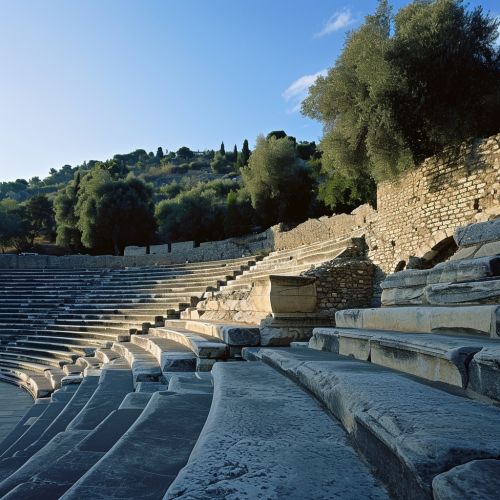Olympics
Origins and History
The Olympic Games are a major international multi-sport event. Originating in ancient Greece as a festival held in honor of Zeus, the father of Greek gods and goddesses, the Games were staged every four years at Olympia, a valley near a city called Elis. People from all over the Greek world came to watch and take part.


The first recorded Olympic Games were held in 776 BC. The ancient Games included running, long jump, shot put, javelin, boxing, pankration and equestrian events. The Games were held in Olympia until 393 AD, when they were abolished by the Roman Emperor Theodosius I in an effort to suppress paganism.
Modern Olympics
The idea of reviving the Olympic Games was first suggested by Pierre de Coubertin, a French educator and historian, in the late 19th century. In 1894, he founded the International Olympic Committee (IOC), and two years later, the first modern Olympic Games were held in Athens, Greece.
The modern Olympic Games have considerably more events than the ancient Games. They are now divided into the Summer Olympics, which includes 33 sports with nearly 400 events, and the Winter Olympics, which consists of 7 sports with approximately 100 events. The Summer and Winter Olympics are each held every four years, but they are spaced two years apart.
Olympic Symbols
The Olympic symbols are icons, flags, and symbols used by the International Olympic Committee to promote the Olympic Games. The Olympic flag, created in 1914, has five interlaced rings on a white background. The rings represent the five continents of the world united by Olympism. The colors of the rings - blue, yellow, black, green, and red - along with the white background, were chosen because they incorporated the colors of all national flags in existence at the time of its creation.
The Olympic motto, "Citius, Altius, Fortius," a Latin expression meaning "Faster, Higher, Stronger," was proposed by Pierre de Coubertin in 1894 and has been official since 1924. The Olympic mascot, an animal or human figure representing the cultural heritage of the host country, was introduced in 1968.
Olympic Ceremonies
The Olympic Games are known for their elaborate opening ceremonies. The ceremony typically starts with the hoisting of the host country's flag and a performance of its national anthem. The athletes parade into the stadium grouped by nation, and the host nation's team is always the last to enter.
The Olympic flame is a symbol of the Olympic Games. The flame is lit at Olympia, Greece, and then carried by torch to the host city in a relay that ends with the lighting of the Olympic cauldron during the opening ceremony. The flame is extinguished during the closing ceremony.
Controversies and Concerns
The Olympic Games have not been without controversy. Issues such as doping, bribery, and a political boycott have marred the history of the Games. There have also been concerns about the environmental and economic impact of hosting the Games.
